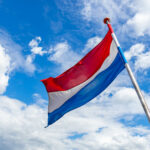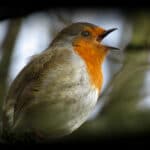Orthodox Easter Day, which takes place on the Sunday after the first full moon after Passover, is a sacred season and the most significant celebration of the Eastern Christian churches or orthodox churches — it will be celebrated on April 16 this year. Orthodox Easter Day is an annual holiday commemorating the death and resurrection of Jesus Christ. It is also known and celebrated as Greek Easter. The date of Orthodox Easter Day is different from the Western Easter, which bases the celebration period on the Gregorian calendar. Meanwhile, the Eastern Orthodox Church still uses the earlier Julian calendar for calculating the dates of festivals, including Easter. This means that Orthodox Easter Day falls later than Easter observed elsewhere.The Eastern Orthodox churches celebrate Easter on a different day than Western churches, although sometimes the dates coincide. The date of Orthodox Easter Day changes every year, but its date falls earliest on April 4 and latest on May 8.
History of Orthodox Easter Day
The Council of Nicaea in 325 A.D. established the celebration of Easter on the first Sunday after the first full moon on or after the March equinox. Although this period of celebration was established for churches around the world, not all churches observe the Easter holiday according to the Gregorian calendar. Many Orthodox churches still observe Easter by following the Julian calendar. The reason for the two different calendars is said to have come from an astronomy miscalculation. The primary goal of creating the Gregorian calendar was to alter the time of Easter. According to history.com, Pope Gregory XIII introduced his Gregorian calendar and Europe adhered to the Julian calendar first implemented by Julius Caesar. Since the Roman emperor’s system miscalculated the length of the solar year by 11 minutes, the calendar has since fallen out of sync with the seasons. This concerned Gregory because it meant that Easter, traditionally observed on March 21, fell further away from the spring equinox with each passing year.In the Bible, Orthodox Easter is the day when Mary Magdalene found an empty tomb in the cave in which Jesus had been placed following his death by crucifixion. It marks the end of the 40 days of Lent (40 days of self-reflection and fasting). The Lenten fast is likened to a spiritual journey of the soul through the wilderness of the world. It is observed to strengthen the inner life of the worshiper by weakening the attractions of the flesh and drawing one closer to God. In Eastern churches, during this fast, no meat or animal products (eggs, milk, butter, and cheese) are consumed and fish is eaten only on certain days.
Orthodox Easter Day timeline
The Julian calendar is first implemented by Julius Caesar.
Pope Gregory XIII introduces the Gregorian calendar.
The World Council of Churches proposes a reform to solve the Easter date difference between the churches observing the Gregorian calendar and those observing the Julian calendar.
Orthodox Easter Day falls on Sunday, April 24.
Orthodox Easter Day FAQs
Why are Orthodox and Catholic Easter different?
Eastern Christianity observes a different date for Easter because they follow the Julian calendar as opposed to the Gregorian calendar, which is mostly used today.
What determines Orthodox Easter Day?
The first Sunday after the first full moon occurs on or after the March equinox.
Why do we celebrate the Easter Bunny?
Rabbits give birth to a big litter of babies, so they became a symbol of new life. This is a tradition that was said to have come about in the 19th century.
How to Observe Orthodox Easter Day
-
Celebrate in church
Attend a church liturgy at Easter, either on Sunday morning or at midnight, between Holy Saturday and Easter Sunday. Celebrate Easter with fellow Christians.
-
Use symbols to identify with the day
Worship using candles outside the church after the midnight liturgy and carry candles to symbolize the resurrection of Jesus Christ. Also, smashing or cracking painted eggs and filling the churches with incense are symbolic acts on this day.
-
Create a feast
Orthodox Easter Day is a day to make plenty of food in several delicacies and invite your family and friends to celebrate with you. It is a day to celebrate with loved ones.
5 FASCINATING FACTS ABOUT EASTER
-
Easter is also known as Paskha
Paskha is derived from the Jewish holiday of Pesach, which commemorates the Jews being released from Egyptian slavery.
-
It is a shifting holiday
Orthodox Easter Day changes/shifts from year to year because it falls on the first Sunday after the first full moon.
-
There is a special greeting
People exchange Easter eggs, kiss each other on the cheeks three times and often say “Christ is risen” to each other, responding with “He is truly risen.”
-
Fasting is done before Easter
Easter is preceded by 40 days of Lent, the most important event in the Orthodox church year.
-
Easter has its own games
Easter celebrations include various games, which usually include the use of Easter eggs.
Why Orthodox Easter Day is Important
-
Its significance
Orthodox Easter Day signifies hope, rebirth, and a new beginning as it reminds us of the resurrection of Jesus Christ, who was sacrificed for our liberation. It is a time for Christians to reflect and remember the love of Christ.
-
The fun traditions and ceremonies
The church ceremonies are the best. The spiritual chanting with candles, filling the church with incense, beautiful hymns by the choir, the red eggs, and Easter games are among the activities that we look forward to during Easter celebrations.
-
The special Easter foods
Since meat, milk, and eggs as well as alcohol and sugar have been prohibited during the 40 days Lent period, Orthodox Easter Day food traditions make up for it. A lot of delicacies are usually made available during the celebration period. Lamb offal soup, roasted lamb, eggs, tsoureki (sweetened yeast bread made with butter, milk, eggs, and spices), dills, lettuce, and other herbs and greens are common during the celebrations.
Orthodox Easter Day dates
| Year | Date | Day |
|---|---|---|
| 2022 | April 24 | Sunday |
| 2023 | April 16 | Sunday |
| 2024 | May 5 | Sunday |
| 2025 | April 20 | Sunday |
| 2026 | April 12 | Sunday |














































